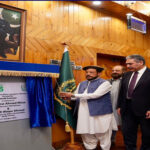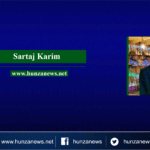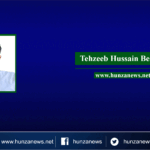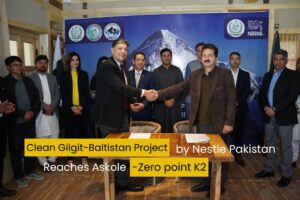[author image=”http://hunzanews.com/wp-content/uploads/2014/05/DSC_0037.jpg” ]Masood Karim Hunzai[/author]
A woman is born free but has to suffer a multitude of bondages such as subjugation, domination and exploitation, varying in their form and extent, depending on one’s physical location and specific level of sophistication of the environment in terms of the societal, social, political, economic and organizational structures that one has to deal with in the daily life. Human history is, on the other hand, also made up of a constant struggle against the forces of domination and exploitation, generally perpetuated through innumerable modes of inequality and discrimination in systemic dispensations. Consequently governance modes and models have evolved under a cumulative thrust of heightened social conscience, which got manifested and codified over time, in International Charters and Declarations on Women’s Fundamental Rights.
Pakistan, although too has remained an enthusiastic and active participant in the international initiatives on human and social development and signed international covenants, including those on women, children and poverty reduction, however, the achievements in these realms are significantly low.
Women and children are among the most marginalized groups of society in Pakistan. This is perhaps, primarily because of religious fundamentalism, extremist and sometimes wrong exegesis and interpretation of religious ethos, and also due to harsh customary norms being practiced nationwide with variations. Women are suppressed in our society since beginning, even though many of INGOs and NGOs are putting their endeavors to protect them from exploitation, abuse and discrimination; however, much is still needed to be done to protect this vulnerable group of our society.
The present dynamic world is constantly changing – primarily driven by scientific advancement and globalization – that result into posing myriad challenges and opportunities to the society. To cope with the challenges of modern world, a balanced society where women is treated on equal standards is becoming extremely necessary; perhaps, by empowering them to take part in every important aspect of life. Parochial and conservative approaches to gender differences would only lead to an imbalanced society where man dominates in every sphere of life.
In the context of Pakistan, to begin with, a strong emphasis on girls’ education at primary level and encouraging them for higher education could be one smart step to be taken. An educated bulk of young women could be change agents for wider and deeper transformation in the society. Similarly, moderating the strict and conservation cultural ethos through behavioral change programs both by public and private sector organizations could bring far reaching consequences in allowing women to participate in various realms socio-economic development of the society. Additionally, through public policy and legislation the government should take considerable measures to protect women from harm, abuse and exploitation.
Hunza, in contrast, offers a different facet of women and the challenges posed to them. Even since 1980s girl’s education has been the most priority area for every member of Hunza society – regardless of their class and backgrounds. Today we see women of Hunza go hand-in-hand with Hunza men in almost every sphere of life. Strict cultural normative framework has also been normalizing under the inevitable forces of globalization, particularly characterized by the flow of tourists. However, there still needs to done for the empowerment of women and for protecting the rights of women in our part of world as well. It also goes without saying that empowerment and freedom should not be at the cost of moral values that have kept our society intact.























